I’ve watched Todd Haynes’ Carol twice now. While I liked it better the second time — and think I misjudged one aspect of it the first time — I’m still not on board with the lovefest over it. Oh, it’s a good movie, and it’s an appealing work on many levels. Certainly, it’s gorgeous to look at in all its glorious 1952-period detail and tastefully burnished color, all enhanced by Carter Burwell’s musical score. The mannered, classical look of the filmmaking itself is a treat. Moreover, Rooney Mara’s performance is a delicious blend of unworldly naïveté and her understanding more than the era and her background should deem possible. And then there’s Cate Blanchett haughtily — and effectively — sailing through the film with the kind of movie star chic quality we don’t really see much of anymore. (I think that affects a lot of the acclaim the film has gotten.) She walks into the frame and, effortlessly, just takes over. But … there’s still something missing here for me. Carol stirs my intellect and my aesthetic sense, but it never really touches me emotionally. That’s a significant drawback for what is essentially a soap opera — a cerebral, classy one, with a lesbian angle that gives it a different slant, but still a soap opera (that is not a slam).
The first time I saw the film, my reaction was that it was Todd Haynes making another ersatz Douglas Sirk-Ross Hunter 1950s soaper, much like he did with Far from Heaven back in 2002. (That, in itself, isn’t entirely fair to Far from Heaven.) And I think that was wrong. It doesn’t really look like one of those generally over-lit 1950s movies. It has its own look — that of a movie taking place in 1952, not of a movie made in 1952. But, more to the point, the tone is different. There’s no sense of mocking the audience the way there is in the Sirk movies, no sense that the filmmaker feels superior to the material. And there is certainly no glitz for its own sake. Carol is more akin to the work of John M. Stahl (some of whose films Sirk remade) in the 1930s: straightforward and honestly believing in the material. I like that. I admire that. I only wish it connected with me more emotionally than it does.
Carol is adapted (by Phyllis Nagy) from a novel, The Price of Salt, by Patricia Highsmith, which was Highsmith’s imagining of what might have been had there been any follow-through after a moment she shared with a shop girl in a department store. (That is a pretty romantic idea for a book.) In the film version, we’re introduced to Carol Aird (Blanchett) and Therese Belivet (Mara) when they’re meeting at the Ritz late in their story. At this point, the significance of what we see is unclear. The film then returns to their first encounter in the toy department of a high-toned store around Christmas time. The two women are obviously attracted from the onset — something that is allowed a follow-up since Carol accidentally (?) leaves her gloves behind on the counter. What follows details their romance, which will ultimately take us back to that first scene (at which time all the nuances of that scene become clear) and beyond.
What distinguishes the film from a standard romantic drama is that it’s a tale of same-sex romance that’s taking place in a world far removed from our own — a world where such a relationship was barely even talked about. That means that not only is everything couched in code and insinuation for the world at large, but the two women are cagey even with each other about their desires. The nature of the flirtations and the courtship is fascinating, yet always recognizable for what’s going on beneath the surface. But something about it keeps me at a distance (and, no, it’s not just the somewhat trite divorce-and-mother-love dramatics that are used to propel the story). The truth is the only time I really felt anything was at the film’s ending — which is one of the finest things I saw all year — and I only wish I felt that way about more of the film.
So, am I recommending Carol? Oh, yes. It’s too well-made to ignore, and it may connect more deeply with you than it did me. The performances alone (with the exception of Jake Lacy, who is now three-for-three with me for performances even Geppetto would find wooden) make it worthwhile, but there’s more than that to it. That it didn’t quite achieve greatness for me is a letdown, sure, but that doesn’t mean it’s not worthwhile. Rated R for a scene of sexuality-nudity and brief language.



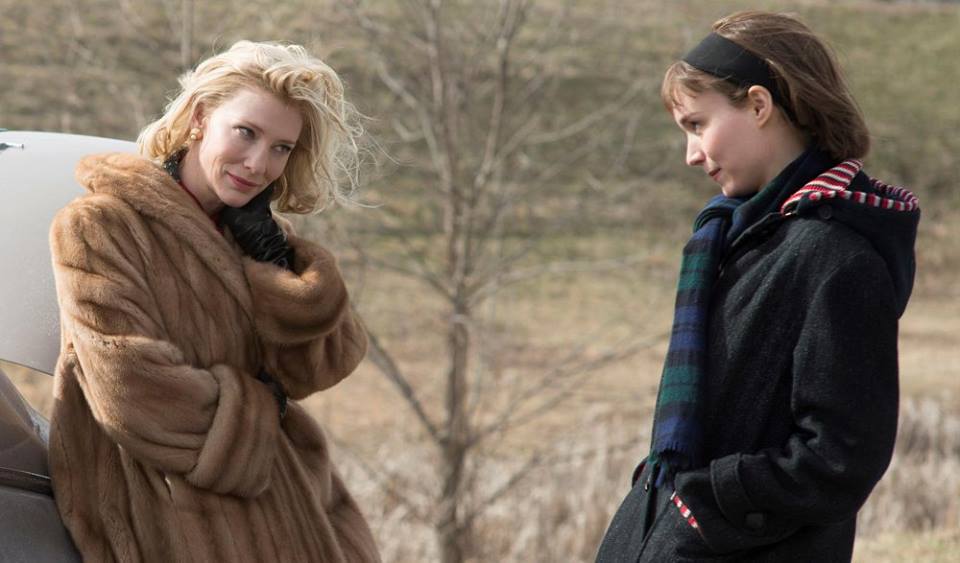
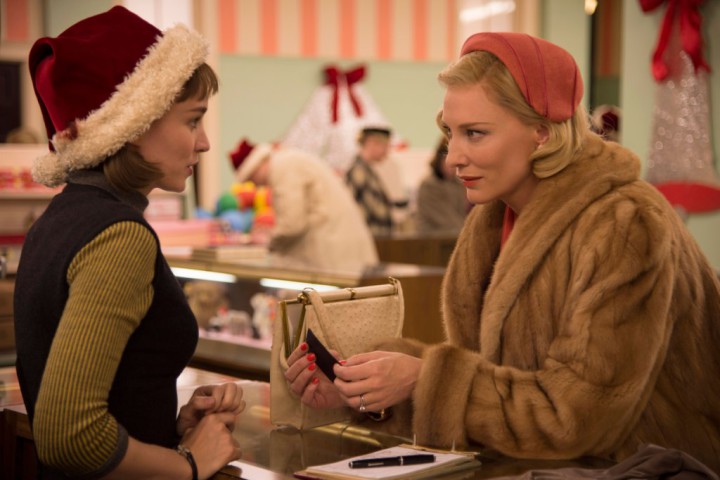
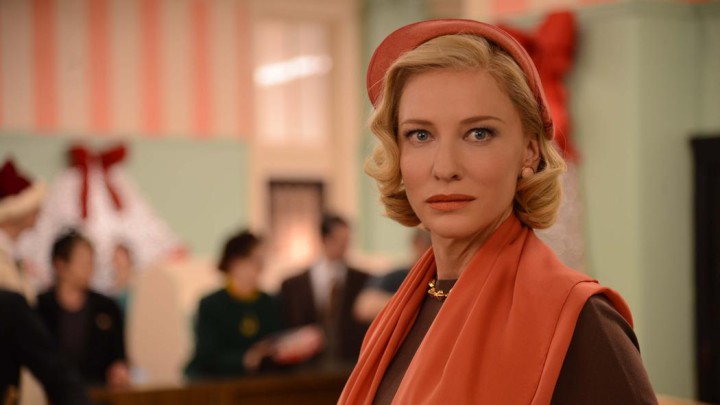
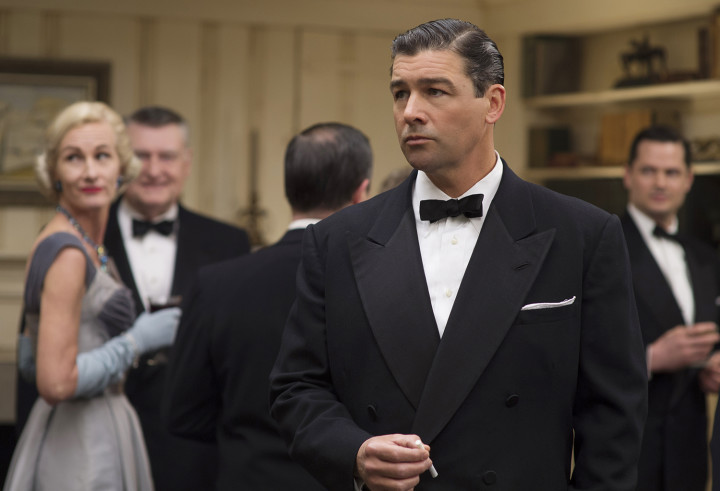
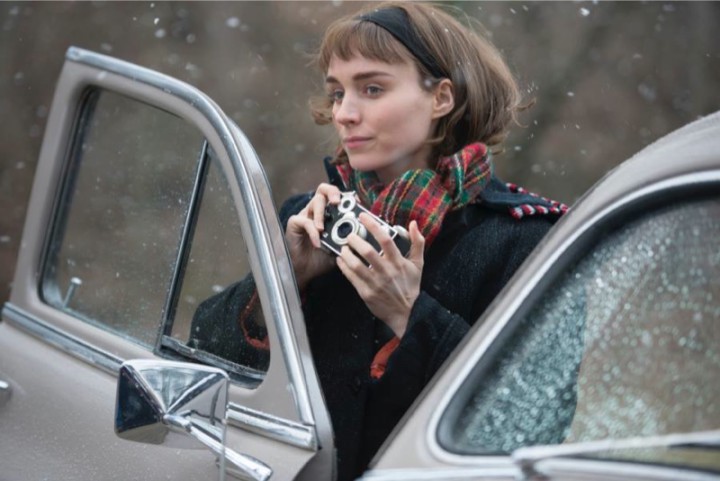
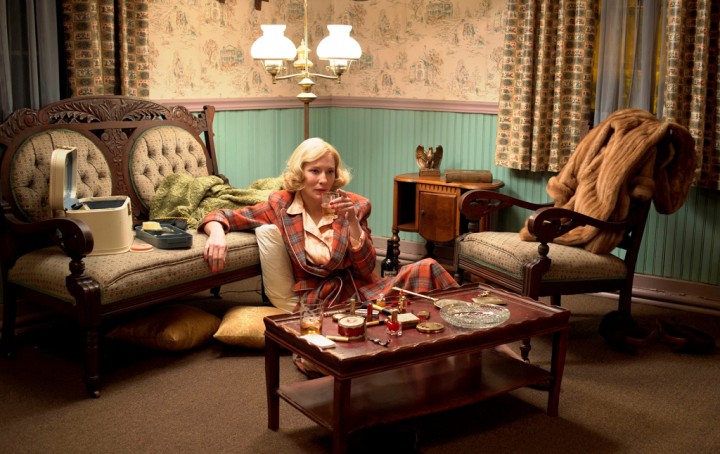
So many great “Christmas” movies this year, Carol, Tangerine, and my personal favorite Christmas Again.
Christmas Again
https://youtu.be/DZGHw3uJJAk
Looks like something I’d go out of my way to avoid.
Anybody see this one?
A fair question.
I like it well enough, but as with Mad Max: Fury Road I’m waiting for a passionate defense that helps me understand why people think it’s a masterpiece.
I understand it more than I understand Mad Max — apart from it’s cool, I can’t imagine. I actually understand why people think Carol is the bee’s knees, but I can’t feel it.
I hear what the proponents are saying – gorgeous cinematography, fantastic chemistry between Blanchett and Mara, poignant presentation of a tricky subject – but the execution of those elements seems more good to me than great.
I thought this movie slow, predictable and tedious. I loved the setting and the costumes. It was too linear. Too overly impressed with the power of lingering eye contact and pauses. Yawn.
I was never bored. Neither was I surprised, but I can’t say I expected to be. I think you have to put yourself in the mindset of the era for the “lingering eye contact and pauses” to work. (Actually, you could almost get the same thing from our own era of late ’60s and early ’70s — when you didn’t dare say too much in case you’re misunderstanding what the other person means, realizing the social damage that could be done if you were indeed wrong — or even if you were right and the other person couldn’t admit it. In fact, the fallout from that might have been worse.) My problem is simply that I don’t really feel much for these people. I probably, in fact, feel more for the Sarah Paulson character.
i understand the choice of lingering eye contact pause pause pause. I use those same things in plays all the time. I also know that they reflect a time when such relationships require “something unspoken” But they were overused to such an extent that they became meaningless. It was a case of diminishing returns.
I cared little for the characters. They revealed very little depth. Just the ability to play subtext. But the same subtext, Terez’s pervasive subtext ” I am new at this. I am scared,” Carol’s subtext ” I am mysterious, but I want you. Trust me>”
Look I am no fan of mouthy spill all people or characters, but this was too much in the other direction. Also the husband was so one dimensional as well all of the interested males. And dear god. The in- laws were almost cartoon characters.
I guess I went in hoping for so much.
Not being a huge admirer of Todd Haynes, I went in with pretty low expectations. That may have helped.
I agree the movie unfolded slowly. But I LOVED that pace. Perhaps you are a really young person or one who is influenced by the young people in your life–their lives are driven by quickpaced action, and they communicate in cryptic, rapidfire texts. I have seen Carol 3 times, and I love the sensuality of the slow unfolding of the character’s feelings for each other. I also was enchanted that so much of what they felt for each other was communicated through body language. I found Carol to be a beautiful, dreamy film in every respect. Tomorrow I will go see it for the 4th time. And I have it pre-ordered on DVD. It is the BEST film I’ve ever seen.
It’s fine that you loved the film It’s fine that you loved the pace. I am not a young person. I am an oldish theater director who knows the fifties very well. I felt the characters were one dimensional. And that the pace was excruciating. I have loved many slow paced movies that worked for me despite the pace because of richer, more complex characters.
I appreciate it when same sex relationships are the subject of films, novels, and plays. I just have expectations for anything I see or read no matter what it explores. I want it to be well written and superbly crafted. Though I thought this film looked wonderful, I felt no attachment for anyone, except the daughter.
I consider myself a gay activist so I am familiar with same sex movies. I don’t know why the notion of the death of one of the characters has anything to do with this movie or my thoughts about it.
This is just one oldish person’s opinion. I am pleased it worked for you. It didn’t work for me.
P.S. I disagree that it was predictable. If you lived through those times you would know that movie depictions of same-sex relationships almost always ended in the death of one of the characters.
Expectations are my undoing. And this is a case in point.
I will say that the local critic said this was his number one pick of 2015. That kind of set me up to be disappointed.
I expected “Todd Haynes does Douglas Sirk…again” and found it wasn’t. That was a plus. What it was, however, not so much when all is said and done. If the rest of it had come near to touching me as much as the framing story…but…